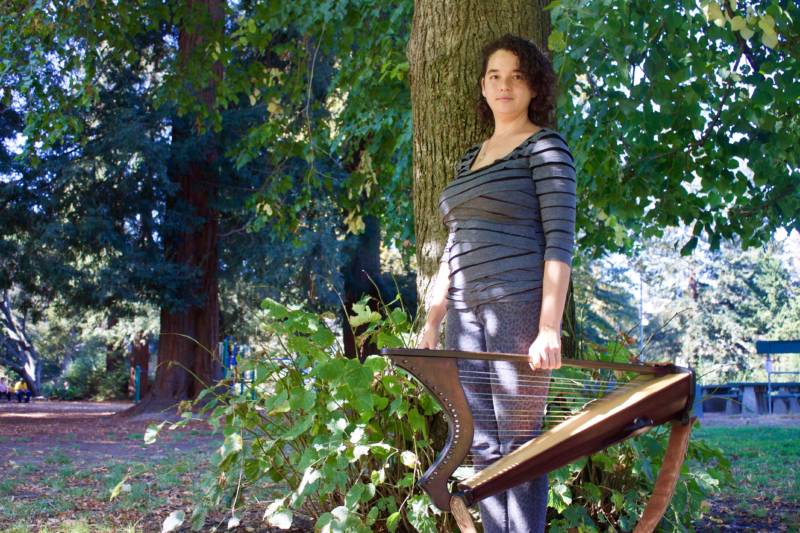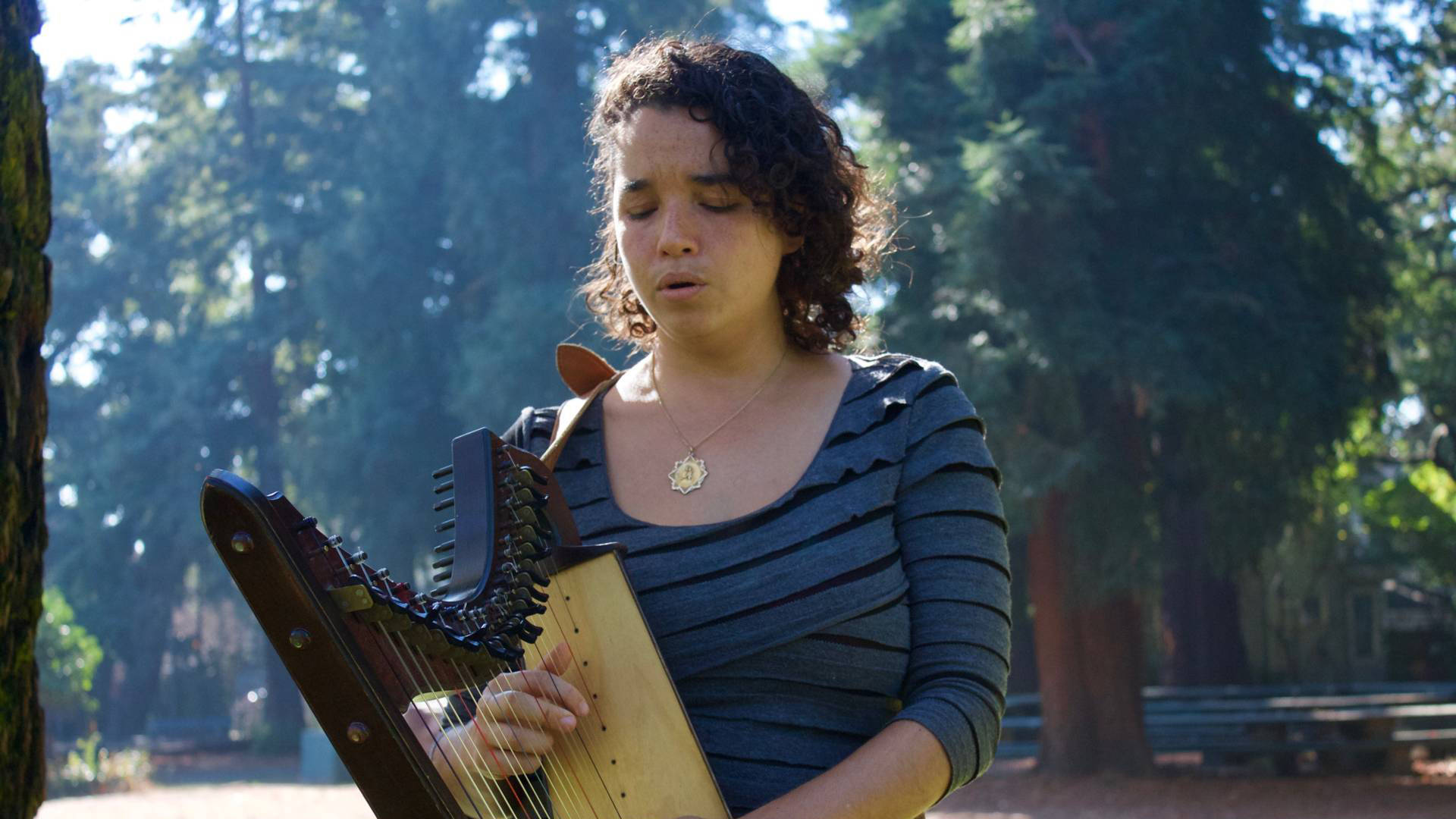Gentle harmonies from her harp fill the air at Oakland’s Dimond Park as María José Montijo, or MaJo, projects her angelic voice in unison with the instrument. Her lyrics evoke images of the Oakland redwoods, her homeland of Puerto Rico, and, most recently, the hurricane that tore apart the rain forests and beaches where she grew up.
MaJo wrote the song “Colonia de Desastre,” which means “Disaster Colony,” after Hurricane Maria hit Puerto Rico in late September. For weeks, she anxiously waited to hear if her loved ones had survived. MaJo translated the song’s lyrics from Spanish to English with tears in her eyes, “I didn’t know anything about you for seven days / My heart started to die slowly / Nobody’s coming to save us / You’re hungry, you’re thirsty, you’re sick, and you’re dying.”
As a Puerto Rican woman living in diaspora, Montijo is using her music to raise money for Puerto Rican relief efforts and promote healing in people watching the devastation from afar, including herself.
“There’s heartbreak because there’s so much devastation and people are suffering so much right now and people are not getting the help that they need,” MaJo says. “[The hurricane] has created an impulse in the whole diaspora of coming together and helping and fundraising and getting supplies over there, because the response has been so inept and vile from the federal and local government.”

Montijo will perform alongside other artists and healers at two upcoming events in solidarity with Puerto Rico. Berkeley’s La Peña Cultural Center will host the first one on Nov. 3, Canto a Puerto Rico, which features a multicultural art sale and benefit concert to raise funds for grassroots organizations in Puerto Rico. Local artists will perform traditional music styles like Cuban trova, Latin American aguinaldo, and Puerto Rican bomba, followed by a dance party to cap off the evening.



